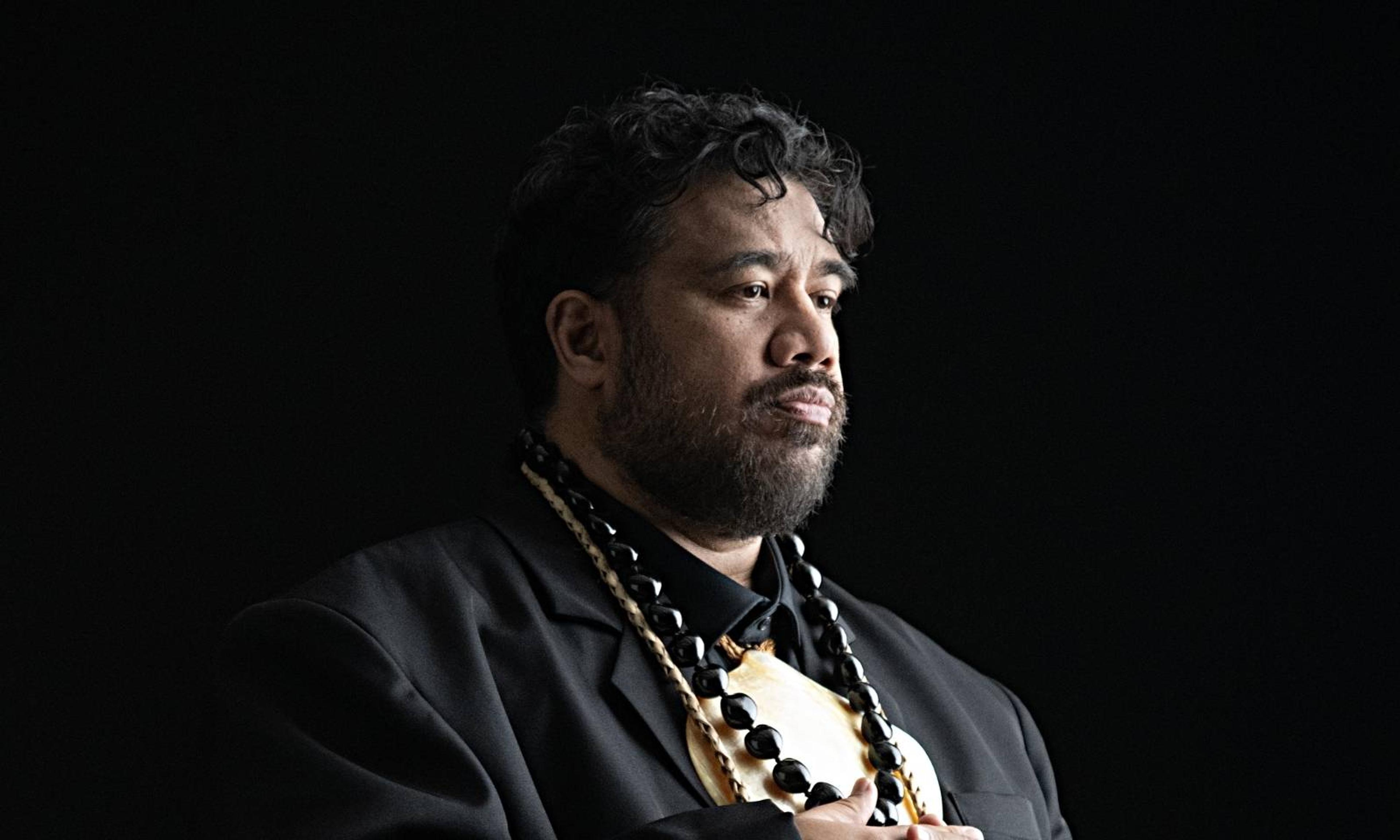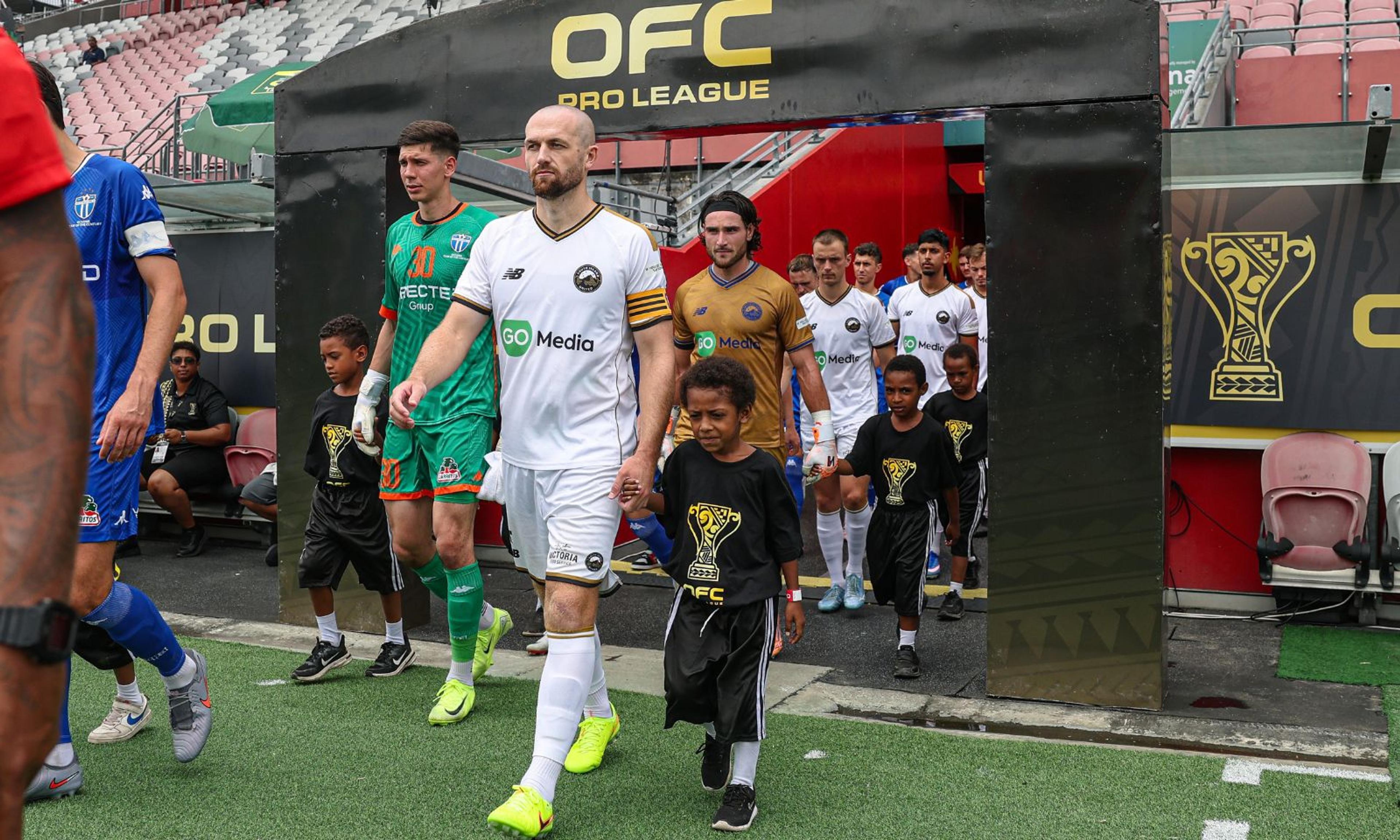

Emele Ugavule has been named the 2024 Emerging Pasifika Writer in Residence at Te Herenga Waka—Victoria University of Wellington's International Institute of Modern Letters (IIML).
Photo/ /ABC/ Teresa Tan
Melanesian recognition overdue says leading Pacific writer
A Tokelauan Uvean Fijian writer and artist says more needs to be done to support the Melanesian diaspora in New Zealand.



UK royal arrest sends shockwaves as Jeffrey Epstein files reference Pacific islands - reports

Second Apology: Fijian artist’s bold new film demands more for Pacific communities




UK royal arrest sends shockwaves as Jeffrey Epstein files reference Pacific islands - reports

Second Apology: Fijian artist’s bold new film demands more for Pacific communities

Tokelauan Uvean Fijian storyteller Emele Ugavule says a show of recent support for Melanesian people and their culture in Aotearoa New Zealand is welcome, yet overdue.
As part of its Pacific Arts Strategy, Creative New Zealand has invested $30,000 into last month’s national Tok Talanoa Celebrating Melanesia symposium, and signed a three-year partnership agreement with community leaders to deliver the annual Melanesian Arts Festival in October 2024.
Kawika Aipa, Creative New Zealand Manager, Pacific Arts, says the investment will provide more support and visibility for Melanesian and Micronesian arts, cultural and creative communities, ensuring Pacific arts include “the whole village”.
Emele has just been named the 2024 Emerging Pasifika Writer in Residence at Te Herenga Waka—Victoria University of Wellington's International Institute of Modern Letters (IIML) – and is the first Melanesian writer to receive the accolade.
She says historically, New Zealand has neglected to recognise most Melanesian communities (apart from Fiji) in Pacific strategies.
“This is despite the region boasting the highest Indigenous and most linguistically diverse population in Oceania,” Emele says.
Born in Takapuna, raised on Bindjareb Boodja, and now based in Lower Hutt, Emele is the founder of the Indigenous-led arts collective Studio Kiin, where story sovereignty, kinship and healing is priority.
She adds the call for liberation from West Papua and Kanak peoples has long highlighted that our freedom as Oceanic peoples is intertwined.
“The most recent activation of Kanaky (in New Caledonia) is a timely reminder that Australia, France, the United States and New Zealand’s refusal to let go of their colonial ties and territories in the Pacific Ocean, are reflective of how powerful and important our ocean is for international security and imperialism.
“It is one of greatest demonstrations of gaslighting - to pretend we are not important yet refuse to yield governance over lands and seas to Pacific peoples - but it will not and cannot shake our sovereignty.”
Creative New Zealand’s focus on the region has come at a pivotal moment and serves as an opportunity to share its unique worldviews, customs and artistic expressions, which are ancient and wise, she says.
“For Melanesian artists, this funding focus provides opportunities to bring ourselves forward, to name what we want and need unashamedly, to mobilise, and to celebrate ourselves loudly and proudly through our storytelling.”
This mobilisation includes Tok Talanoa, which celebrated Melanesian artists and was hosted by Studio Kiin in partnership with Pātaka Art + Museum, as well as the addition of Solomon Islands and Papua New Guinea Language Weeks to the Pacific Language Weeks series, supported by the Ministry for Pacific Peoples.
Additionally, Vanuatu Language Week is being piloted for the second year, while Wan Solwarian newsletter provides quarterly updates about what is happening across the motu in Melanesian communities.
However, Emele believes there is much more to be done, in support of the Melanesian diaspora and challenges it faces in Aotearoa.
She says excluding most Melanesian communities in government strategies is systemic racialised discrimination.
“An example of this is the invisible labour of Melanesian peoples that sustains the New Zealand economy.
“Melanesian peoples are the largest population of workers in the Recognised Seasonal Workers scheme, and for many this is the only way to enter the country as immigration policies make it difficult … it is Melanesian peoples who are carrying key industries in an economy that cannot sustain itself on local labour.”
Fighting to be seen and heard among Pacific communities takes an emotional, intellectual and spiritual toll, and Emele says while recognition may not necessarily be happening in the external way people have hoped for, there is an internal shift happening.
“Melanesian communities have, and continue to, self-organise, gather, celebrate each other and I think it's important to acknowledge the community leaders who ensure this happens through independence day celebrations, youth groups, performing arts groups, language classes, advisory groups, university committees and student groups.
“I love being in Melanesian spaces, I am incredibly proud of my ancestry as a Fijian, and I want to encourage fellow Fijians as well as our kin from Zenadth Kes, West Papua, Papua New Guinea, Bougainville, Solomon Islands, Vanuatu, Maluku, Kanaky to stand up, stand proud.
“Melanesia is a colonial term, and our kin-ways are what bind us and will outlive all colonial constructs.”
Visit the Melanesian Festival Facebook page for updates.